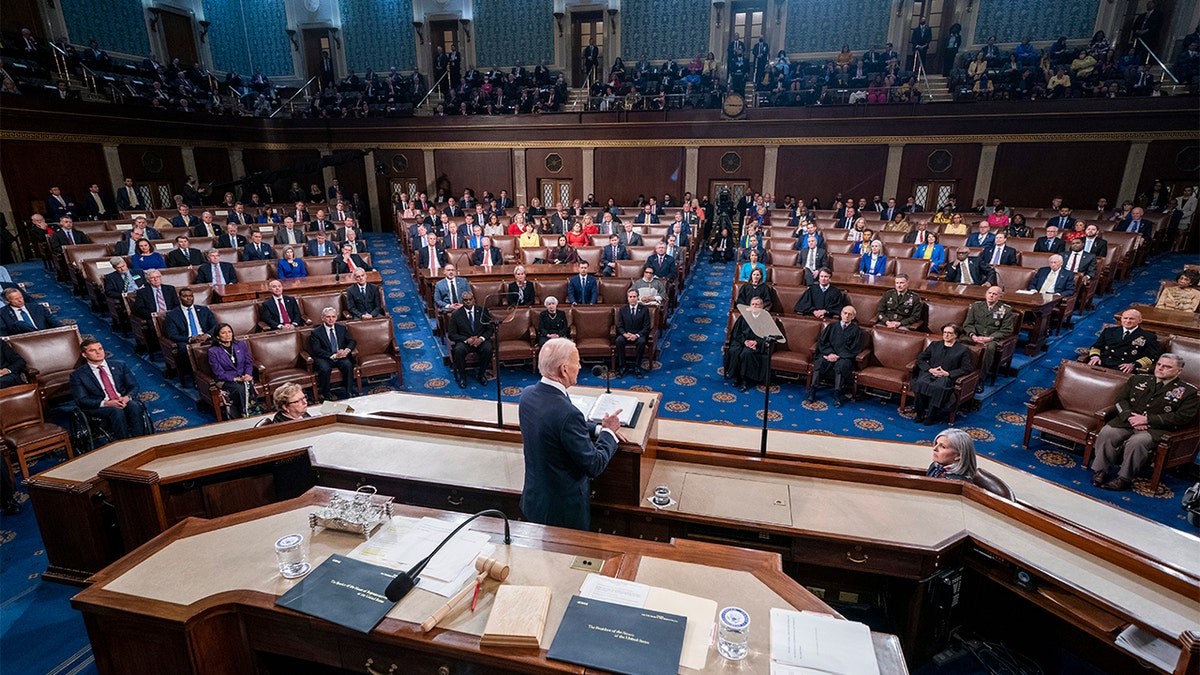
President Joe Biden returns to the White House after a weekend trip to Delaware on March 20, 2022. (Kevin Dietsch/Getty Images)
Washington Post opinion columnist Perry Bacon Jr. wrote Tuesday that he doesn’t understand why Biden administration policies are "failing." After all, he believes they’re "popular" and that the president has been a "unifying figure."
Bacon was puzzled at President Biden’s current political misfortunes. He opened his piece, saying, "Bidenism is failing. But we don’t know exactly why or what it portends for the future."
The writer claimed, "Joe Biden’s successful 2020 campaign and his approach to the presidency were premised on the idea that an older, White, male and moderate politician who focuses on such things as the economy and COVID-19, and who generally avoids issues such as abortion and transgender rights, could ease the country’s partisan divisions."
Bacon described how Biden’s advisers even thought this approach could make him "more effective than Barack Obama was, because conservative White voters would feel less threatened by him and congressional Republicans would be more willing to work with a longtime former colleague."

President Donald Trump makes his way to Marine One from the South Lawn of the White House on Nov. 2, 2018. (Getty)
Despite such notions, the columnist admitted that didn’t happen.
"Nope," he wrote, "Biden’s approval rating is about 42%, while about 53% of likely voters disapprove of him." He added, "That’s not much better than Trump’s standing at the same point in his presidency," and commented that Obama didn’t get such bad ratings "until the fifth year of his presidency."
But, "Biden has pushed popular policies, said little as state-level Republicans pass extreme legislation, such as total bans on abortion, and tried hard to be a unifying figure," he wrote.
Thus, he reiterated, "But while it’s clear Bidenism is failing, it’s not clear exactly why."
The writer considered several theories, including those of "centrist Democrats" who "argue that the president, particularly early in his term, swung too far to the left. More liberal Democrats argue that Biden is not progressive enough," he said, adding, "Others cite the Democratic infighting this past year over Biden’s agenda, the traditional backlash against first-term presidents, COVID and, most often, inflation."

Hundreds of people gather near a U.S. Air Force C-17 transport plane at the international airport in Kabul, Afghanistan, on Aug. 17, 2021. (AP)
Bacon did note that "What is most tightly correlated with Biden’s decline, however, is not COVID deaths or rising prices but the messy withdrawal from Afghanistan." The writer observed that Biden "became more unpopular then and never recovered."
RUSSIA WARNS US OF 'UNPREDICTABLE CONSEQUENCES' AMID LATEST ARMS SHIPMENT TO UKRAINE: REPORT
He also denied the idea that Biden has "swung too far left." He claimed, "In his State of the Union, the president shifted aggressively to the center, but his approval numbers barely budged."
Bacon surmised, "It’s likely that all of these factors combined hurt Biden," though he admitted he couldn’t "isolate the most important one."
Later the columnist wrote, "Ultimately, I wonder whether we have simply entered an era in which presidents are always going to be unpopular."
CLICK HERE TO GET THE FOX NEWS APP

President Joe Biden delivers his first State of the Union address to a joint session of Congress at the Capitol on March 1, 2022. (Shawn Thew/Pool via AP)
Toward the end of the column, he added, "But even if we don’t know exactly why Biden is unpopular and what that means for the future, one thing is clear – emphasizing unity and ducking divisive issues hasn’t worked. The Obama and Biden presidencies have together proved that."
He concluded, "Biden tried to be popular and unifying — and is neither. His failings discredit his political approach — and it’s the same one that has dominated the Democratic Party for decades."




















